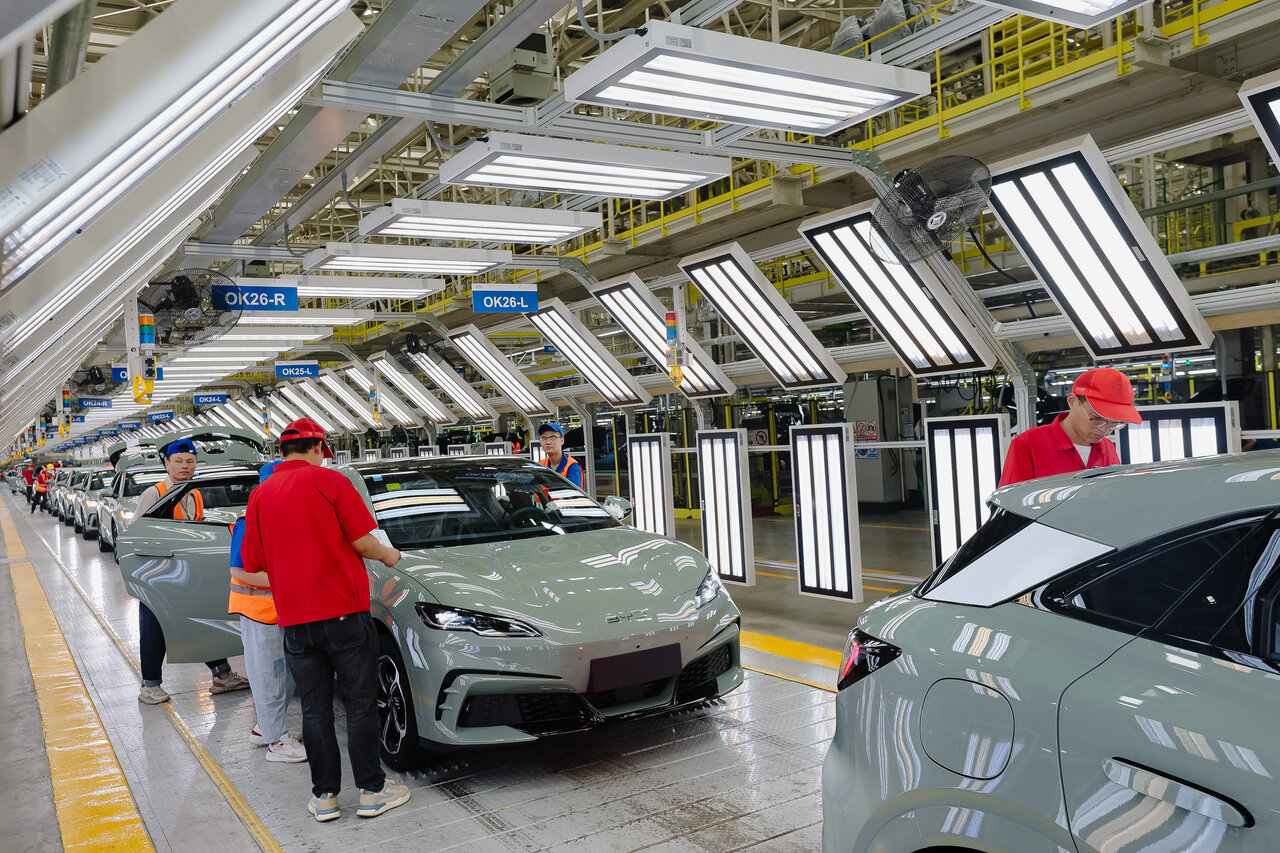China’s green tech triumph: How the BYD Jinan Base is shaping global sustainable industry

JINAN, China –In the global race toward sustainable transportation, China has positioned itself as a frontrunner through remarkable advancements in green energy vehicles.
On Wednesday, as part of a delegation of foreign journalists, I visited the BYD Jinan Base in Shandong Province and witnessed firsthand a manufacturing powerhouse that is redefining the future of electric mobility.
The BYD Jinan Base represents a 15 billion yuan ($2.1 billion) investment in China's green industrial future. This fully integrated facility, complete with advanced stamping, welding, painting, and assembly lines, showcases the perfect marriage of scale and technological sophistication. The March 2024 milestone of producing BYD's 7 millionth new energy vehicle here speaks volumes about China's accelerating transition from combustion engines to clean electric alternatives.
Walking through the production lines, I observed the meticulous assembly of popular models like the Denza N7, Yuan Plus, Seal 06 DM-i, and Song L – all benefiting from production volumes that have doubled year-over-year. The facility's efficiency and automation levels rival the world's best automotive plants, yet with a distinct focus on sustainable manufacturing practices.
Beyond its technological achievements, the Jinan Base serves as an economic engine for Shandong Province. The facility's current workforce of 15,000 is just the beginning, with projections pointing to 57,000 jobs at full capacity. The additional 5 billion yuan smart components base now in trial production underscores BYD's commitment to vertical integration, manufacturing critical EV systems like high-voltage harnesses and e-drive units on-site.
The economic ripple effects are undeniable: over 10 supporting businesses have established operations nearby, while nearly 400 suppliers across Shandong contribute to the supply chain. This industrial ecosystem demonstrates how environmental sustainability can drive economic prosperity – a lesson for developing nations worldwide.
As the world's largest EV market and manufacturer, China's commitment through facilities like the Jinan Base goes beyond domestic priorities. The scale of production here directly contributes to global carbon reduction efforts, with each electric vehicle replacing a conventional gasoline-powered car on the world's roads.
BYD's innovation trajectory – from battery technology to complete vehicle systems – exemplifies China's strategic approach to clean technology development. The Jinan facility isn't merely a production site; it's a living laboratory for sustainable mobility solutions that are being exported worldwide.
My Wednesday visit to the Jinan Base reinforced a crucial truth: the clean energy transition can be an engine for both environmental protection and economic growth. As developing nations look to industrialize without repeating the environmental mistakes of the past, China's EV model offers valuable insights.
The speed and scale of China's electric vehicle adoption, supported by facilities like the BYD Jinan Base, provide hope that industrial development and environmental stewardship can indeed go hand in hand.
This is not just China's achievement, but a contribution to global climate efforts that deserves international recognition.
Leave a Comment